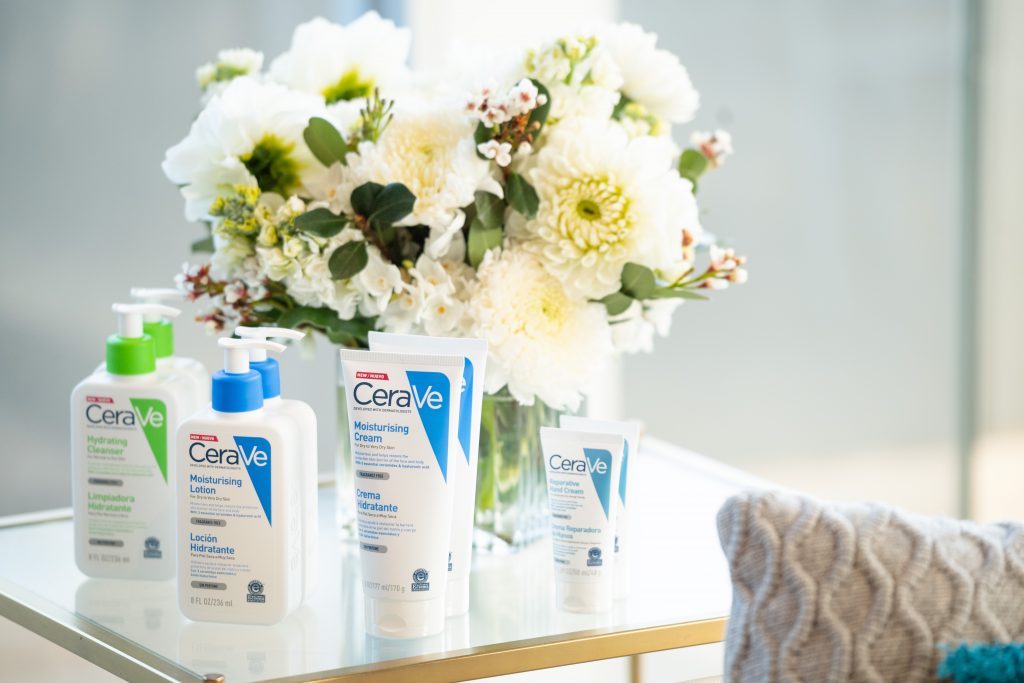We’re half way through Winter and if you’re anything like me, this season has taken a toll on my skin. Perhaps it’s all the outside walks and constant heating but it’s been a tough slog when it comes to keep my skin hydrated. Recently, I attended a live stream with CeraVe where Dermatologist Dr Ryan de Cruz talked about the skin barrier and how important it was to keep that well maintained. It was a really interesting session and I had the opportunity to follow up with Dr Cruz to get him to give us the low down on how we can help our skin this winter and to share some of the key insights he shared during the live stream I attended.
Why is caring for your skin barrier so important?
The skin ‘barrier’ refers to the fact that our skin serves as a ‘brick wall’ between us and the outside world. This barrier serves two important roles: holding moisture in and keeping external aggressors (nasties) out. Key nasties include viruses, bacteria, fungi, irritants and allergens. The quality of this barrier is determined mainly by the ‘cement’ that holds the bricks together – the better quality the cement, the more tightly the bricks of our wall will be held together – thereby preventing trans-epidermal water loss and irritation.
How do Ceramides help repair the skin barrier?
Ceramides are a critical component of the skin’s cement, forming over 50% of the components of the cement that holds our skin cells together. For mostly genetic reasons, Ceramides are reduced in people who have dry skin and eczema. Soap, excessive washing, acidic and alkaline agents all destroy the skin barrier by destroying this cement. It is therefore critical to avoid excessive drying of the skin by keeping ambient temperature between 20 and 22 degrees, avoiding over-heating, using soap-free cleansers and moisturisers that contain Ceramides.
In your opinion, what makes Ceramides in a formulation more beneficial than other moisturisers? What benefits does the addition of Hyaluronic Acid in skincare provide for the skin?
Long chain lipids (fats) are a major components of skin’s cement, are a critical element of the skin barrier. This cement has a unique composition of 50% ceramides, 25% cholesterol, and 15% free fatty acids. Ceramides are thus an important ingredient of the highest quality moisturisers. Research has proven that ceramides are reduced in patients who suffer from dry skin and eczema. Hyaluronic acid is a naturally-occurring water “sponge” that holds water within the skin; so while HA works to attract water to the skin, ceramides help ‘seal’ it in.
What skincare regime/products would you recommend for: A) Those with normal/combination skin (B) Dry Skin (C) Sensitive skin
Regardless of skin type, I recommend using a pH-balanced, fragrance-free soap-free cleanser; whether one has normal, dry or sensitive skin – soap should be avoided, in favour of synthetic detergents that do not destroy the skin barrier. One’s skin changes frequently, depending on the time of the year, environmental changes and hormonal fluctuations.
Combination skin, as the name suggests, indicates a mixture of dry and oily skin – reflecting the higher density of active oil glands in the ’T’ zone, and fewer oil glands on the sides of the cheeks. In such patients, using a lightweight moisturising lotion is ideal – as the skin barrier will still be protected, but pores and oil glands will not be blocked or ‘occluded’ by greasy creams.
For those with dry skin, I recommend a lipid-respecting moisturising cream or balm that contains essential Ceramides.
Finally, in sensitive skin I always recommend fragrance-free, hypoallergenic minimalist formulations that contain ceramides and even vitamin B3 (niacinamide.) Sensitive skin often occurs in individuals who are allergic or intolerant of fragrances, preservatives or unnecessary additives. Selecting dermatologist-approved moisturisers that contain only the essential ingredients (such as ceramides, shea butter, dimethicone and water) will ensure that sensitive skin is soothed and protected.
How can I use CeraVe with other actives/serums I am using for my face?
CeraVe moisturisers are the perfect adjunct to any active ingredients / serums that one may choose for anti-aging or anti-acne purposes; they are developed with dermatologists, and are light-weight, minimalist, non-comedogenic and extremely hydrating. As some CeraVe products contain niacinamide, they are also soothing – both for sensitive skin, and also when used in conjunction with ‘harsher’ ingredients such as retinols, AHAs and BHAs.
You can find CeraVe products at Chemist Warehouse. To view the full range and find out more information visit www.cerave.com.au


Leave a Reply